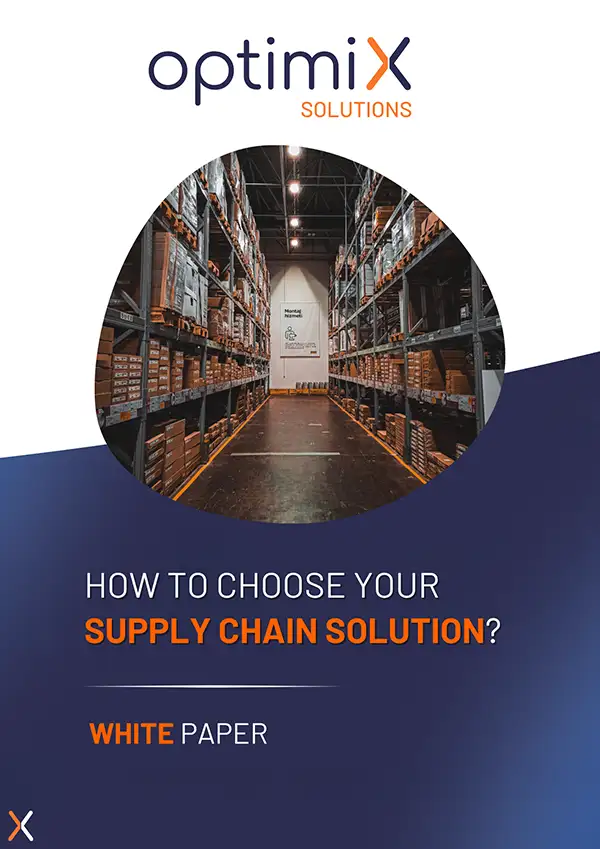Introduction
In the contemporary business landscape, sustainability has emerged as a paramount concern, holding significant importance for numerous reasons. Notably, its benefits extend beyond the environmental sphere, encompassing cost savings and enhanced efficiency as well. In the retail sector, sustainability plays a pivotal role, particularly in supply chain optimization.
The path to operational efficiency lies in the precision of supply chain planning. When companies focus on improving accuracy, a cascade of benefits follows. By meticulously managing inventory volumes and minimizing losses, they create an agile and cost-effective system. This, in turn, enhances the efficiency of transportation and operations, thus laying the groundwork for versatile improvements.
Gaining a competitive advantage
The benefits of advanced supply chain planning go beyond financial gains. By strengthening their profitability, companies also pave the way for positive contributions to environmental sustainability. By reducing excess inventory, they curb wasteful practices and decrease their ecological footprint. Optimized transportation methods help minimize carbon emissions and embrace a more environmentally friendly approach. Optimized transportation methods help minimize carbon emissions and embrace a more environmentally friendly approach.
As a result, retailers are faced with the crucial task of meeting sustainability criteria and adapting their operations. This not only obliges them to provide products that comply with ecological standards but also to optimize their entire supply chain. Efficient resource management, streamlined transportation, and the adoption of environmentally friendly packaging practices are just a few of the essential measures they need to undertake.
By embracing these sustainable practices, companies can establish a meaningful connection with environmentally conscious consumers and retailers. This alignment with the growing market expectations for sustainability allows them to foster stronger partnerships and gain a distinct competitive advantage.
White Paper : Green Supply Chain
In today’s competitive market, the growing demand for eco-friendly products and ethical business practices, both from consumers and retailers, has put sustainability at the forefront for distribution companies. To remain relevant and meet customer expectations, these companies must now prioritize sustainability and seamlessly integrate it into their supply chain operations.
In this white paper, we explore ways to reconcile environmental sustainability with the imperatives of product availability, cost reduction, and customer satisfaction.
Discover how a forecast-based approach and logistic flow modeling contribute to an optimal balance between reducing greenhouse gas emissions and logistic performance.
Sustainable strategies for a green Supply Chain
Enhancing sustainability in the retail industry involves the integration of various initiatives to reduce CO2 emissions and minimize waste within the supply chain. By embracing cutting-edge technologies to enhance storage and selection processes, as well as implementing effective waste reduction strategies, these companies can significantly decrease their environmental footprint while simultaneously enhancing overall operational efficiency.
Optimizing order management
Retailers can enhance their environmentally friendly practices by optimizing order processes, ensuring trucks are efficiently loaded, and mitigating CO2 emissions stemming from partially filled trucks.
Moreover, robust inventory management systems and supply chain optimization strategies can effectively contribute to reducing environmental impact. For instance, they enable retailers to minimize the number of trips required for goods delivery.
Warehouse space optimization
Optimizing warehouse space is of crucial importance, especially when it comes to meeting cooling requirements. By strategically designing the floor plan, establishing streamlined picking routes, and implementing intelligent storage solutions, companies can effectively reduce cooling needs, resulting in significant energy savings.
Supply Chain management tools
The importance of supply chain optimization tools cannot be overstated, as they play a crucial role in helping businesses optimize their warehouse space and streamline operations for enhanced sustainability.
With the Optimix XFR solution, you can calculate accurate forecasts for consumer demand at the point of sale. The solution integrates store data, adjusts for influencing factors, corrects sales histories, and generates dependable forecasts.
In an integrated supply chain approach, the forecast then flows through all links of the supply chain.
As a result, the forecast helps ensure supply chain commitments : ensuring product availability, controlling logistical costs, as well as minimizing waste and thus reducing greenhouse gas emissions throughout the logistics chain.
Improvement in customer-supplier coordination
Enhancing coordination between customers and suppliers through collaborative demand planning offers significant benefits, not only by aligning scaling plans, but also by maximizing space utilization.
By seamlessly integrating these processes, companies can unlock significant synergies within their operations, leading to highly adaptive and efficient supply chains. This strategic approach promotes a closer partnership among all stakeholders and paves the way for mutual success.
The changing landscape highlights the growing importance of eco-friendly products and ethical business practices. To remain relevant and meet expectations, it has become imperative for companies to place sustainability at the forefront of their strategies.
However, this is not just a moral obligation : it is a strategic decision that can ultimately determine a company’s success in today’s dynamic and ever-evolving business environment.
By adopting environmentally friendly practices and integrating sustainability into their supply chain, companies can reap various benefits, leading to increased profits, optimized inventory management, efficient space utilization, and overall operational efficiencies.







